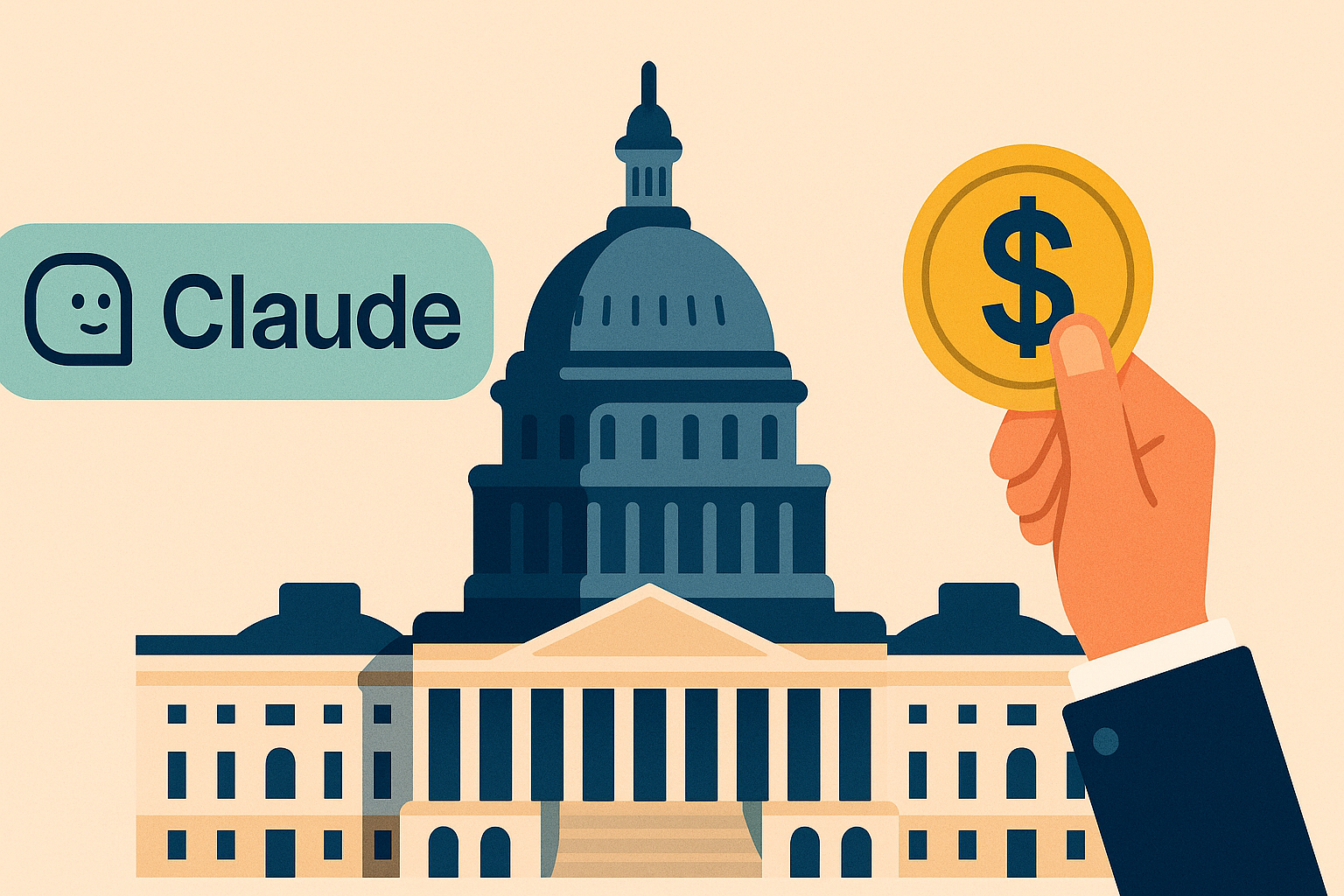Artificial intelligence start-up Anthropic will provide its Claude chatbot to U.S. lawmakers, federal agencies, and top judges for a nominal fee of $1 per entity, as it competes with rivals for influence and adoption in Washington under President Donald Trump’s administration.
The agreement, reached with the U.S. government on Tuesday, mirrors a similar deal by OpenAI, which is also offering its enterprise tools to the executive branch for $1 per agency. Anthropic will extend the same offer to members of Congress, senators, and judicial leaders.
“We need to get widespread adoption [of AI tools] in the federal government,” said Josh Gruenbaum, commissioner of the Federal Acquisition Service, which manages procurement for U.S. agencies. “The price is going to help uptake from agencies happen that much quicker.”
Access Across All Three Branches
Under the deal, Claude for Government can be used by federal workers for sensitive but unclassified work. While the arrangement facilitates access, agencies are not required to adopt Claude.
Google is also in talks to offer its Gemini chatbot to federal employees on similar terms, according to a source familiar with the negotiations.
Anthropic’s CEO Dario Amodei said the initiative supports “America’s AI leadership” by giving government institutions access to secure, advanced AI tools. “By offering expanded Claude access across all three branches of government, we’re helping the federal workforce leverage frontier AI capabilities,” he said.
The U.S. government approved Anthropic’s Claude, Google’s Gemini, and OpenAI’s ChatGPT as suppliers earlier this month, and is exploring agreements with other leading models, including Meta’s Llama and xAI’s Grok, as well as smaller AI platforms.
Competitive Benefits and Political Context
While the contracts generate little direct revenue, AI companies see value in learning how government agencies use their tools — knowledge that could inform future product development and commercial deals.
The approvals come shortly after the White House pledged to block AI providers from government contracts if their systems display “partisan bias or ideological agendas.” Trump’s political allies have accused some models, including ChatGPT and Gemini, of promoting liberal viewpoints. Officials stressed that approval does not prevent future reviews for potential bias.
Gruenbaum noted that these agreements do not indicate a government preference for any one model, saying, “There’s almost a market efficiency when you have that competitive tension and dynamic to make these tools accurate and truthful.”
Financial Pressures and Industry Growth
Both OpenAI and Anthropic are spending heavily — in the tens of billions — on computing power to train and run AI models, as well as on competitive pay packages amid a talent war. Despite significant losses, both enjoy strong investor backing and soaring valuations.
-
OpenAI is negotiating an employee share sale that could value the company at $500 billion.
-
Anthropic is raising $5 billion at a $170 billion valuation.
-
ChatGPT reports 700 million monthly active users, while Gemini has around 450 million.
The $1 offers to lawmakers and agencies reflect the increasingly aggressive strategies AI companies are using to secure a foothold in government operations — a market that could shape long-term influence and public-sector AI adoption.



